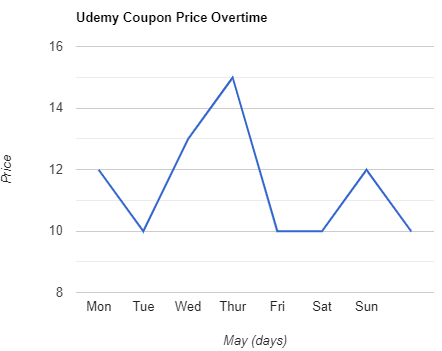Deep Learning by MIT Press
Written by superstars in the field, this free and detailed introduction to Machine Learning and Deep Learning is intended for experienced practitioners as well as students. The book covers deep learning background, its techniques and algorithms, and research perspective.
Created by: Ian Goodfellow
Produced in 2016
 What you will learn
What you will learn
- Learn to successfully apply deep learning techniques on Google Maps example
- Commercial use of deep learning on speech recongition, computer vision, NLP
- Understand deep learning through mathematical concepts
- Basic machine learning algorithms such as linear regression
- Important deep learning techniques like deep feedforward networks and convolutional networks
- Choose the correct algorithm to improve your ML systems
- Master linear factor models, autoencoders, representation learning, structured probabilistic models, Monte Carlo methods
- Much, Much more!
 Quality Score
Quality Score
Content Quality
/
Video Quality
/
Qualified Instructor
/
Course Pace
/
Course Depth & Coverage
/
Overall Score : 82 / 100
 Live Chat with CourseDuck's Co-Founder for Help
Live Chat with CourseDuck's Co-Founder for Help
Need help deciding on a machine learning course? Or looking for more detail on Ian Goodfellow's Deep Learning by MIT Press? Feel free to chat below.
Join CourseDuck's Online Learning Discord Community
 Course Description
Course Description
 machine learning Awards Best Text Based Course
machine learning Awards Best Text Based Course
An introduction to a broad range of topics in deep learning, covering mathematical and conceptual background, deep learning techniques used in industry, and research perspectives."Written by three experts in the field, Deep Learning is the only comprehensive book on the subject." - Elon Musk, cochair of OpenAI; cofounder and CEO of Tesla and SpaceXDeep learning is a form of machine learning that enables computers to learn from experience and understand the world in terms of a hierarchy of concepts. Because the computer gathers knowledge from experience, there is no need for a human computer operator to formally specify all the knowledge that the computer needs. The hierarchy of concepts allows the computer to learn complicated concepts by building them out of simpler ones; a graph of these hierarchies would be many layers deep. This book introduces a broad range of topics in deep learning.The text offers mathematical and conceptual background, covering relevant concepts in linear algebra, probability theory and information theory, numerical computation, and machine learning. It describes deep learning techniques used by practitioners in industry, including deep feedforward networks, regularization, optimization algorithms, convolutional networks, sequence modeling, and practical methodology; and it surveys such applications as natural language processing, speech recognition, computer vision, online recommendation systems, bioinformatics, and videogames. Finally, the book offers research perspectives, covering such theoretical topics as linear factor models, autoencoders, representation learning, structured probabilistic models, Monte Carlo methods, the partition function, approximate inference, and deep generative models.Deep Learning can be used by undergraduate or graduate students planning careers in either industry or research, and by software engineers who want to begin using deep learning in their products or platforms. A website offers supplementary material for both readers and instructors.
 Pros
Pros
 Cons
Cons
-
- Covers the latest developments of Deep Learning.
- Clear and sophisticated presentation.
- Considered as "the Bible" of Machine Learning.
- Written by one of the most respected AI researchers.
- Perfect as a reference for further learning and research.
-
- The book is written in a high-level academic manner. Will be difficult to understand for some.
- Not recommended for students that prefer step-by-step tutorials.
 Instructor Details
Instructor Details

- 4.1 Rating
 21 Reviews
21 Reviews
Ian Goodfellow
Ian Goodfellow is a Director of Machine Learning in the Special Projects Group, who previously worked at Google and OpenAI. He holds PhD in machine learning from the University of Montreal.
 Students also recommend
Students also recommend

-
Machine Learning Recipes with Josh Gordon (2016)
-
0.0 (0 Reviews)
-
 Provider: YouTube
Provider: YouTube Time: 1h 30m
Time: 1h 30m
Free






